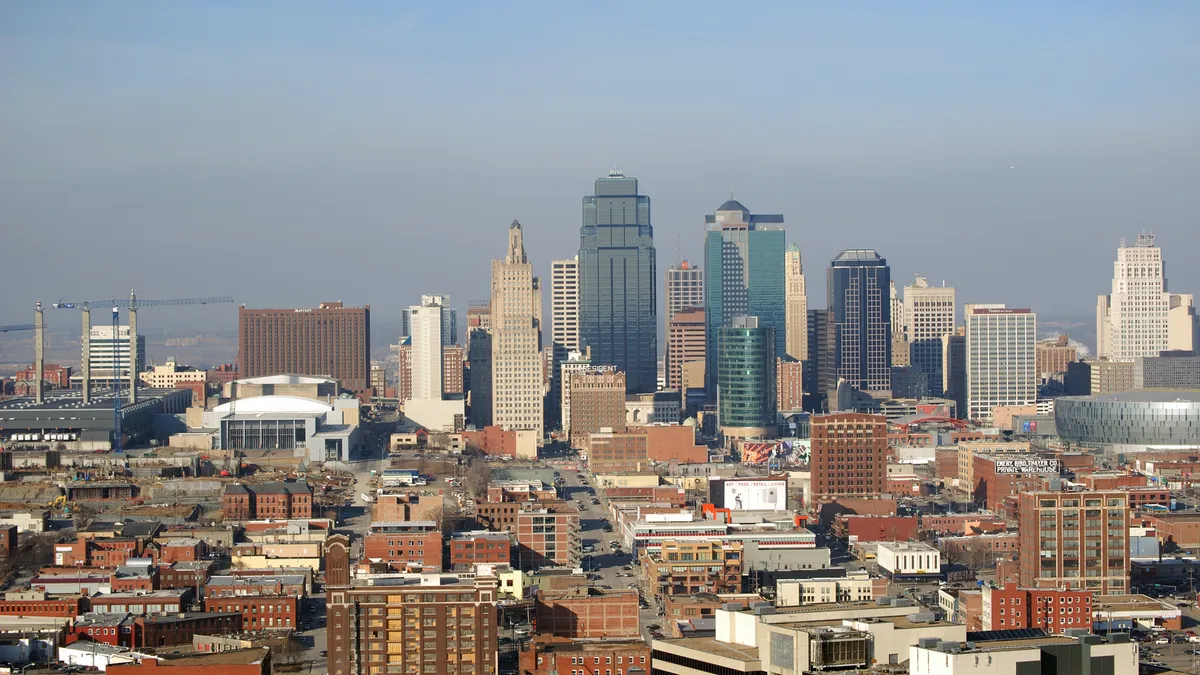Dive Brief:
- The Kansas City, MO City Council voted unanimously last week to make all the electricity used by government come from carbon-free sources by the end of 2020.
- The legislation also directs the city to develop a 25-acre, 5 MW community solar farm to purchase more electric vehicles (EVs) and hybrid for the city fleet between 2021 and 2026, and to have Energy Star certification for most municipal buildings by 2023.
- "Where Kansas City leads, other cities follow," Council Member Scott Taylor, a sponsor of the legislation, said at the council meeting.
Historically when #KansasCity leads on initiatives like City government buildings transitioning to 100% carbon free, others follow. It's a privilege to work alongside community leader, staff, & council colleagues on this! @KCMO @KCPLConnect https://t.co/i0YtDbOzAy
— Scott Taylor (@Scott_TaylorKC) March 7, 2019
Dive Insight:
While some cities have pledged to go carbon-free by 2030 or later, this plan from Kansas City is one of the more ambitious, as its elected leaders look to take the bull by the horns in the battle against climate change.
As cities battle against dire warnings of the threat of climate change issued by the federal government and the United Nations' Intergovernmental Panel on Climate Change, cutting emissions in their transportation and buildings sectors is one of the biggest ways to address the challenge.
Even though Kansas City was not chosen as a winner of Bloomberg Philanthropies' American Cities Climate Challenge, the city has clear goals to keep up with those 25 winners, if not surpass them. It has taken similarly bold moves in its efforts to become a smart city, including issuing a request for proposals seeking partners to expand its initiatives in that space as well as encouraging startups to partner with city departments in its Innovation Partnership Program.
Combating climate change is becoming increasingly focused at the local level, as the federal government has seemingly abdicated national leadership. And while some city leaders have expressed concerns about the pace of change needed for these ambitious timelines, this goal shows Kansas City is serious about getting it done.
Their initiative is in keeping with a forward-thinking attitude by smarter cities, with its leaders having warned previously that those that do not innovate risk being left behind.















